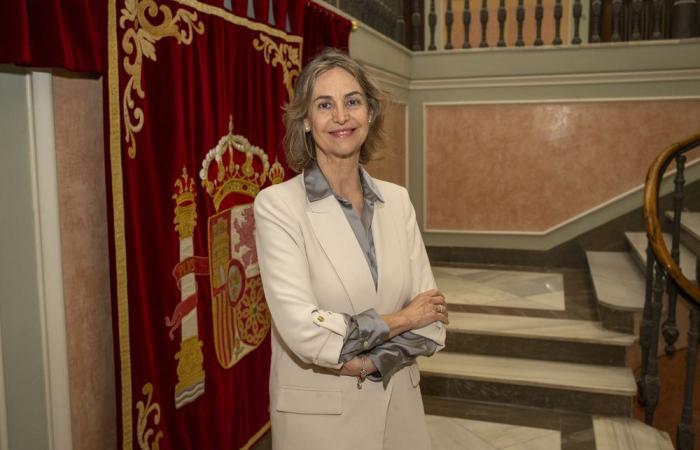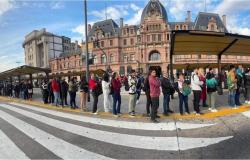Raquel Iranzo Prades, president of the Contentious-Administrative Chamber of the Superior Court of justice, intervened in the Aluex cycle, with the Conference La Justicia in the current reality and told the Albacete gallery different aspects of his intervention in the auditorium of the Diputación.
The title of the conference is justice in current reality, it can almost give for a course …
Yes, it seemed almost typical of a course. Starting from the most elementary, what justice is, the idea has been to descend, through the theory of the division of powers, which is the rule of law, in the Constitution and, then, of the Judiciary also in the Constitution. A general panorama and then, with a more personal radiography of interesting aspects and particular issues, because justice is currently.
Is it good for justice to be daily?
I don’t think so. Justice is a technical branch that has its rules and codes and I do not think they have to be constantly currently, because the judges do a quiet, daily job, solving countless conflicts and does not have to be constantly in the press. What happens is that there are assumptions that, due to circumstances, are popular, currently and that is why justice is, relatively, daily in programs, they are star cases, which have a lot of public transcendence and that leads to judicial decisions to be daily in the press.
Can the politician, the citizen question judicial decisions?
Why not. Judicial decisions can be questioned, but it cannot be through insult or disavow. Of course, judicial decisions have to be questioned and that also helps the progress of justice, but we are coming to live situations in which the reaction is no longer to put them in question, but, on some occasions, lines are transferred that, in my way of seeing, should be impassable, because that can have a very negative consequence, the distrust of the society in the judiciary, and that is what we would have to avoid. It is essential that society trust its institutions, is the health and firmness of a society. When judicial decisions are questioned, through disavow and insult, you can try to make a distrust of the Judiciary, and that is not good.
The interference that occurs daily in the Judiciary would be very negative.
In my view, provided that these interference, whether they are not an analysis or comment, but also intend, directly or indirectly, to influence a judicial decision, for me, that is tremendously negative. That means questioning the very essence of the rule of law and the division of powers. The powers are controlled with each other, but none are above and from none guidelines or interference in the other powers could be imparted. That balance that defines the rule of law and the division of powers, is essential to maintain it.
We see every day how from areas, such as the politician, or from certain pressure groups try to influence.
The first thing I have to say is that it is not widespread. In some things there are those manifestations that can be taken as an interference and that is negative, but not only for the functioning of the Judiciary, in general, of the State of the Company.
The citizen thinks justice is slow, is that so?
It is a reality, unfortunately. The judges are the ones who feel that this is the case, but there are circumstances, for me a determinant, is the precariousness in the number of judges. Thus, it is an overwhelming fact, Spain is one of the countries of the European Union with the lowest ratio of judge per inhabitant. It is a matter as simple as that, there are very few judges for the level of litigation that arises in Spain, so the consequence is slow, although there are other factors, we have accessed late and digitalization but, fundamentally, it is simple we are one of the countries with the lowest proportion of judges per 100,000 inhabitants, of the EU. Do not look for complicated reasons, it is that simple.
It must be solved …
In my view, I can leave the idea that justice cannot be so slow, because there comes a time that reduces the standard of justice, but things are, but the citizen must know one thing, the determination of the number of judges does not correspond to the Judiciary, but to the Executive Power, which is the one that determines the creation of new places.






